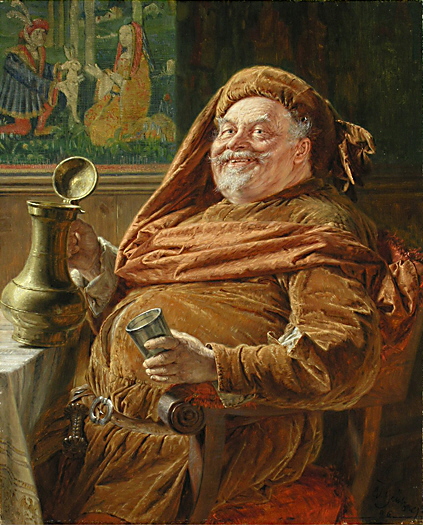Elder, CSO deliver another beautifully played Bardic program

Sir Mark Elder has gracefully assumed the mantle worn in past decades by Erich Leinsdorf– a favored Chicago Symphony Orchestra podium guest who elicits consistently first-class playing while bringing imaginative and generous programs.
So it was the case again Thursday night when the English conductor offering another Shakespeare-inspired evening for the second and final week of his January CSO residency.
Composers have turned to Shakespeare for musical inspiration more than any other text, save the Bible. Two of the finest musical adaptations were heard Thursday night, both written by compatriots of the Bard of Avon yet remaining infrequently performed, at least on this side of the pond.
Sir Edward Elgar’s Falstaff is a notoriously tough work to program and perform. Part tone poem, part programmatic symphony, it’s a long and somewhat episodic haul at 35 minutes yet ranks high among the English composer’s most inspired efforts.
As last week, Elder provided his own precise introduction and one can hardly do better than his summary of Falstaff as “brilliant program music” and “a work of great symphonic power.” Actors from Chicago Shakespeare Theater once again prefaced the performance with readings from Henry IV, Parts One and Two, with Greg Vinkler a characterful but never caricatured Sir John and Jurgen Hooper contributing briefly as Prince Hal. Projected capsule descriptions of the musical motifs unobtrusively illuminated the score as it was performed.
Some maintain Falstaff is Elgar’s greatest work—I would opt for the two symphonies–but the terrific performance conjured up by Elder and the orchestra made the finest possible case. From the brash swagger of the opening theme depicting the boisterous conviviality of the Boar’s Head Tavern, every strand of Elgar’s “Symphonic Study in C minor with Two Interludes in A minor” was clearly outlined in a full-bodied, boldly projected performance. Much of Elgar’s Falstaff is jocular and high spirited, yet Elder and the CSO also brought out the essential contrasts. The more interior passages were painted with lightly inflected rhythms and wondrous delicacy, as with Falstaff’s nostalgic dreams of his non-morbidly obese youth, with lovely wistful violin solos by Robert Chen. So too the final section when Falstaff is necessarily rejected by Prince Hal as he assumes the throne was affecting and beautifully played by all with special note of John Sharp’s cello work. A magnificent performance of a somewhat intractable work and one one that deserved more than the rather tepid applause it received Thursday night.
Elgar’s tone poem was preceded by another rarity, Delius’s Walk to the Paradise Garden, not performed by the CSO in 42 years. Composed as a scene change interlude for Delius’s opera A Village Romeo and Juliet, this gorgeous miniature was given a fluent, non-saccharine reading with luminous string playing by the CSO, Elder eliciting a magical extended diminuendo at the coda.

The Russian second half combined a cornerstone work by Tchaikovsky with yet another rarity, this time by Rimsky-Korsakov.
His penultimate opera was The Legend of the Invisible City of Kitezh and the Maiden Fevroniya. While the work is rarely revived—how do you get the title on a marquee?—the four musical excerpts Elder served up made one want to sample more of this fantastical opera.
Presenters have become a bit snobbish about Rimsky in recent decades, and even the once-omnipresent Sheherazade seems to have faded from concert programs. That’s unfortunate for what the composer often lacked in depth and dramatic punch, he more than made up for in thematic richness and harmonic daring.
Give credit to Elder for unearthing these four “musical pictures” from Invisible City, three of which were being heard in their CSO subscription premieres (Amazingly, the complete opera was performed by the orchestra in a 1932 runout concert to Ann Arbor.) The opera’s folkloric element is consistently to the fore as is Rimsky’s gifts as a master colorist. Elder led beautifully played performances that brought out the iridescent scoring and melodic charm.
Elder closed the generous evening with the most-performed work inspired by a Shakespeare text, Tchaikovsky’s Romeo and Juliet Fantasy Overture. Even in this warhorse, the British conductor brought new light with a taut, organic reading shorn of bombast. The fight music had all due hair-trigger volatility yet what impressed most was the attention to quieter dynamics and subtle textural detailing.
The program will be repeated 1:30 p.m. Friday, 8 p.m. Saturday and 3 p.m. Sunday. cso.org; 312-294-3000.
Posted in Uncategorized


